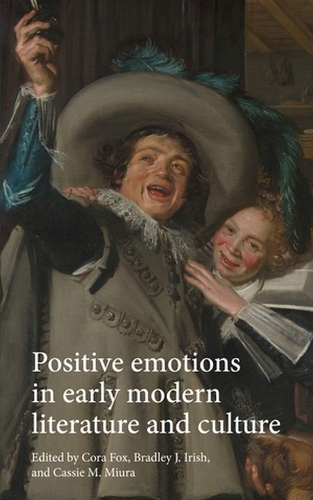
Positive Emotions in Early Modern Literature and Culture
(Hardback)
Publishing Details
Positive Emotions in Early Modern Literature and Culture
By (Author) Cora Fox
Edited by Bradley J. Irish
Edited by Cassie M. Miura
Manchester University Press
Manchester University Press
4th May 2021
United Kingdom
Classifications
General
Non Fiction
Social and cultural history
809.031
Physical Properties
Hardback
240
Width 156mm, Height 234mm, Spine 14mm
Description
Exploring representations of happiness and other positive emotions in early modern Europe, this volume brings together interdisciplinary approaches informed by affect theory, history of emotions research, and the contemporary cognitive sciences to highlight the meanings and valuations of good feelings in the Renaissance.
What did it mean to be happy in early modern Europe Positive emotions in early modern literature and culture includes essays that reframe historical understandings of emotional life in the Renaissance, focusing on under-studied feelings such as mirth, solidarity, and tranquillity. Methodologically diverse and interdisciplinary, these essays draw from the history of emotions, affect theory and the contemporary social and cognitive sciences to reveal rich and sustained cultural attention in the early modern period to these positive feelings. The book also highlights culturally distinct negotiations of the problematic binary between what constitutes positive and negative emotions. A comprehensive introduction and afterword open multiple paths for research into the histories of good feeling and their significances for understanding present constructions of happiness and wellbeing.
Author Bio
Cora Fox is Associate Professor of English at Arizona State University
Bradley J. Irish is Associate Professor of English at Arizona State University
Cassie M. Miura is Assistant Teaching Professor in the Division of Culture, Arts, and Communication at University of Washington, Tacoma
